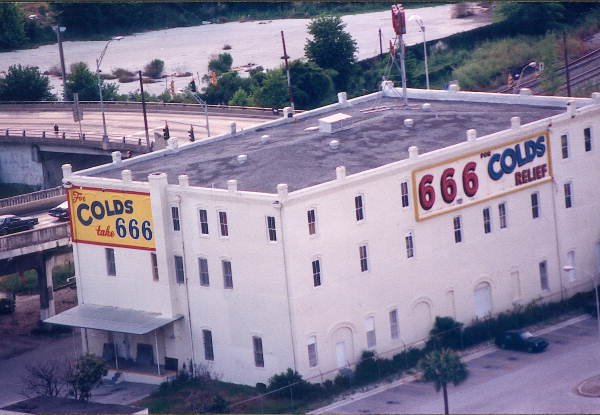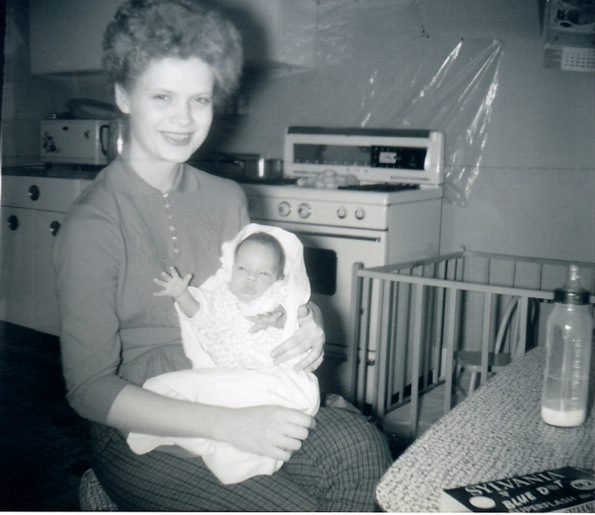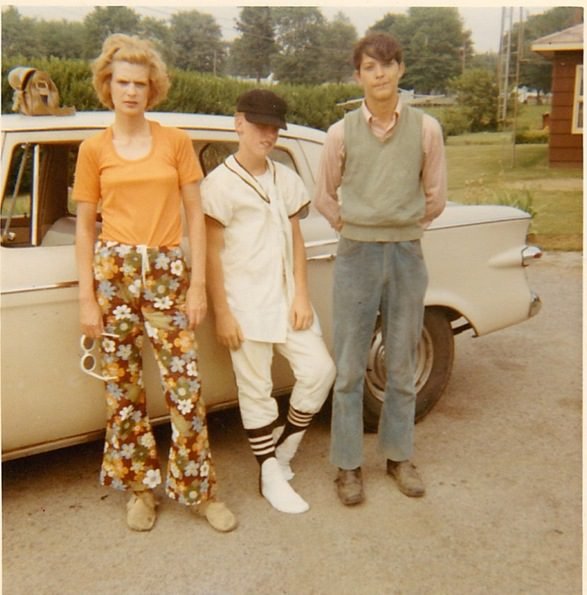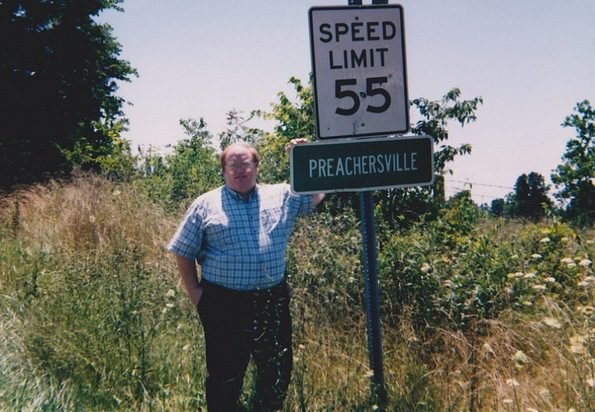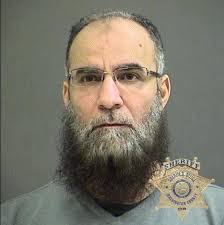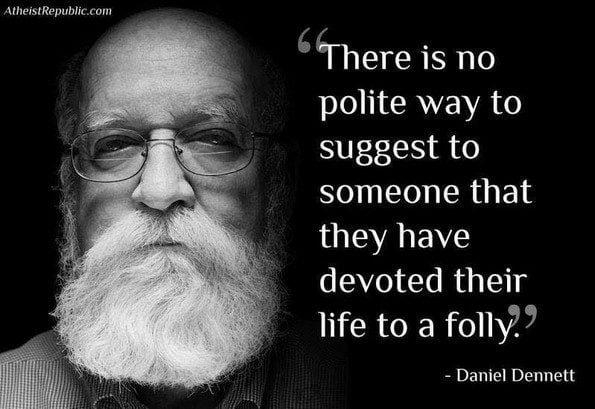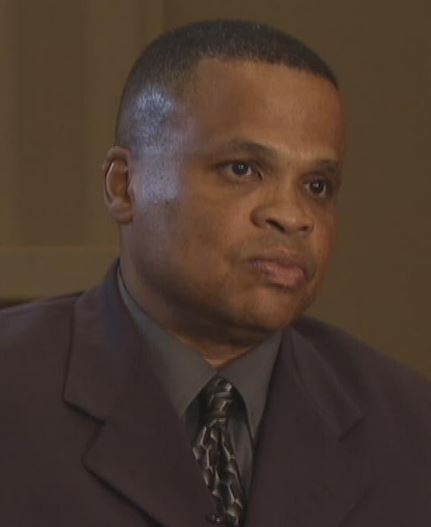
The Black Collar Crime Series relies on public news stories and publicly available information for its content. If any incorrect information is found, please contact Bruce Gerencser. Nothing in this post should be construed as an accusation of guilt. Those accused of crimes are innocent until proven guilty.
In 2018, Tim Crumitie, former pastor of an unnamed church, was accused of the attempted murder of Kimberly Cherry along with the murder of Michael Gretsinger, Cherry’s boyfriend
The Charlotte Observer reported:
One of two bullets lodged in her head made it difficult for Kimberly Cherry to speak.
When asked by a 911 operator in August 2016 to identify the person who had shot her, Cherry’s halting voice seemed to teeter on the edge of consciousness. But her answer was clear.
“His name is Tim,” she said.
Sitting between his two attorneys, Tim Crumitie showed no emotion Monday morning as the voice of his former girlfriend – and an expected witness against him – wafted through the courtroom, opening the former minister’s first-degree murder trial in a haunting way.
The 52-year-old convicted felon is accused of the predawn ambush of Cherry and her boyfriend Michael Gretsinger in University City. Mecklenburg Assistant District Attorney Clayton Jones told the jury that after springing from behind the front door of the couple’s apartment, Crumitie fired two shots, execution style, into Gretsinger’s head. The Charlotte man died about 10 days later.
Crumitie then bound the arms of Cherry, put her in the passenger seat of her own car, and eventually drove her to his Rowan County home, Jones said, “figuring out what he wanted to do.”
Later that morning, Crumitie doubled back, Jones said, driving Cherry’s car to a construction site near her apartment. There, according to Jones, Crumitie shot her once in the back of the head. After Cherry fell to the ground, Jones said, Crumitie shot her again in the left temple.
Miraculously, Cherry was still alive when Crumitie put her in the trunk of the car and started driving again. Eventually the car stopped. At that point, Cherry popped the trunk and escaped, Jones said. A neighbor at the Ardmore Kings Grant apartments called 911.
Eventually, Cherry got on line. “Please send someone to help me,” she said.
If convicted of the murder charge, Crumitie faces a mandatory life in prison without parole. He is also charged with assault, kidnapping and attempted first-degree murder in the shooting of Cherry.
….
How much they [the jury] will hear about Crumitie’s past before making that decision remains unclear.
On Monday, Superior Court Judge Hugh Lewis cleared the way for prosecutors to mention that Crumitie served eight years in prison back in the 1990s for armed robbery and other crimes.
Crumitie also has been physically present or criminally linked to three mysterious shooting deaths over less than a decade – including those of his wife and a former business partner.
In 2005, while Crumitie was a Kannapolis pastor, he was charged with murder in connection with the shooting death of Danny Johnson, who operated a flooring company next door to the church. Crumitie spent five years in jail before authorities dropped the charges, saying they lacked the evidence to take the case to trial.
Eight years later, Crumitie was the lone surviving witness to a double homicide inside the garage of his Concord home.
He told police that during an attempted robbery, James Blanks fatally shot Crumitie’s wife, Sharon, then shot Crumitie in the hand before Crumitie wrested the gun away and shot and killed Blanks in self defense. No charges were filed.
At the time of the 2016 shooting, Gretsinger’s family questioned why someone with Crumitie’s background was not in jail.
“It’s shocking. It’s frightening … Why is he out there?” Kim Gretsinger, the victim’s mother, told WCCB the day after the shooting.
In 2018, Crumtie was convicted of these crimes and sentenced to life in prison.
In 2020, Crumtie was charged with the murder of Anastasia Meaders.
A man who is linked to multiple open cases and has been serving a life sentence for the attempted murder of a Charlotte woman and killing her boyfriend is now charged with murdering her daughter, according to the Iredell County Sheriff’s Office.
Timothy Lavaun Crumitie, 54, has been charged with the death of Anastasia “Star” Talisha Meaders, whose skeletal remains were found on Jan. 15, 2019.
Meaders’ remains were located a wooded area off Bridgewater Lane near Mooresville. Over a two-day period, deputies searched the wooded area locating approximately 70 human bones. The bones were taken to North Carolina Baptist Hospital where an autopsy was performed. The cause of death was ruled to be a gunshot wound to the head, deputies said.
In October 2019, DNA extracted from teeth positively identified the remains as Meaders, who had been reported missing from Charlotte in August of 2016.
Meaders was last seen alive in Charlotte in June 2016. She was 29-years-old at the time of her disappearance, deputies said. Her vehicle, a black 2007 Chevrolet Impala, was located abandoned at Liberty Park in Mooresville in July 2016.
Liberty Park is a few miles from the location on Bridgewater Lane where Meaders’ remains were discovered, deputies said.
Iredell County Sheriff’s Office detectives interviewed her family members and other witnesses which lead them to a possible suspect, Timothy Lavaun Crumitie.
Through the investigation, detectives determined Crumitie was convicted of the attempted murder of Kimberly Cherry who was Anastasia’s mother, along with the murder of Michael Gretsinger, Cherry’s boyfriend. Crumitie committed these crimes in August 2016 in Mecklenburg County, deputies said. He was convicted in 2018 and is currently serving a life sentence in this case.
Anastasia Meaders was reported missing during the same time as the attempted murder on her mother, Kimberly Cherry. The last time Meaders was physically seen was June 17, 2016, at a beauty shop in Charlotte, deputies said.
Phone records indicate Anastasia’s last communication was with a family member on June 24, 2016. Throughout the investigation, detectives were able to gather evidence and statements which indicated Crumitie was the last person to be seen with Meaders.
While gathering information about Crumitie, detectives learned he was the pastor of a church in Concord where he met Kimberly Cherry and Anastasia Meaders.
In September 1989, Crumitie was arrested for armed robbery in Onslow County. He was convicted of this crime in March 1990. He was released in August 1998 after serving eight years in prison.
In September 2005, Crumitie was arrested for the murder of his business partner, Danny Kaye Johnson in Mecklenburg County. He spent five years in jail and was later released after the case was dismissed.
On July 3, 2013, Concord Police investigated the murder of Sharon Crumitie. Sharon was the wife of Timothy Crumitie at the time. She and a man named, James Blanks where at the scene of a reported robbery at the home of Timothy and Sharon Crumitie. The report says James Blanks was supposedly breaking into the garage of the home when he shot Sharon Crumitie in the head. Timothy Crumitie claimed he then wrestled the gun away from Blanks. During the altercation, Crumitie shot Blanks in the head after sustaining a gunshot wound to the hand.
In December of 2013, Crumitie’s home burnt to the ground. The resulting investigation determined the fire was intentionally set by Crumitie. He was arrested on March 24, 2014, for insurance fraud. In August 2014, Crumitie was arrested for fraudulently burning a dwelling and was convicted in December 2015.
In April of 2016, Crumitie was living with an older woman in Rowan County who died under “questionable circumstances.” Crumitie had befriended the elderly woman, and at some point during their year-long relationship, he became appointed as her power of attorney and executor over her estate.
Timothy Lavaun Crumitie is currently serving a life sentence for the murder of Michael Gretsinger and the attempted murder of Kimberly Cherry.
On Tuesday, Jan. 21, 2020, Crumitie was served with an arrest warrant for the murder of Anastasia Meaders.
The Statesville Record & Landmark reported:
Timothy Lavaun Crumitie, 54, who is currently serving a life sentence for a murder conviction, has been charged with homicide in the death of Anastasia “Star” Talisha Meaders.
The case follows an investigation that took more than a year and involved a lengthy series of tests to identify the victim.
On Jan. 15, 2019, detectives, deputies and Crime Scene Investigators with the Iredell County Sheriff’s Office responded to a wooded area off Bridgewater Lane near Mooresville in response to a report of human skeletal remains having being located, according to a news release.
A two-day search resulted in 70 human bones being collected. After an autopsy at the North Carolina Baptist Hospital, the cause of death was determined to be a gunshot wound to the head. Ten months later, the victim was identified as Meaders. She had been reported as missing in Charlotte in June 2016. She was 29.
Her vehicle had been found at Liberty Park in Mooresville in July of 2016, just a few miles from where her body was later found.
Detectives with the Iredell County Sheriff’s Office interviewed family members, and Crumitie was determined to be a suspect.
Crumitie was previously convicted of the attempted murder of Kimberly Cherry, who was Meaders’ mother, along with the murder of Michael Gretsinger, Cherry’s boyfriend. Crumitie committed these crimes in August of 2016 in Mecklenburg County. He was convicted in 2018 and is currently serving a life sentence, according to a news release.
Meaders was reported missing during the same time as the attempted murder on her mother. The last time Meaders was physically seen was June 17, 2016 at a beauty shop in Charlotte.
Phone records show her last communication was with a family member on June 24, 2016, according to a release. Throughout the investigation, detectives were able to gather evidence and statements which indicated Crumitie was the last person to be seen with Meaders.
While gathering information about Crumitie, detectives learned he was the pastor of a church in Concord, North Carolina, where he met Cherry and Meaders, the release states.
The following details were also outlined in a release from Iredell County Sheriff Campbell:
In April of 2016, Crumitie was living with an older female in Rowan County who died under questionable circumstances. He had befriended the elderly female, and at some point during their year-long relationship, he became appointed as her power of attorney and executor over her estate.
On July 3, 2013 Concord Police Department investigated the murder of Sharon Crumitie, who was the wife of Timothy Crumitie at the time. She and a man named James Banks were at the scene of a reported robbery at the home of Timothy and Sharon Crumitie. The report says James Banks was supposedly breaking into the garage of the home when he shot Sharon Crumitie in the head. Timothy Crumitie claimed he then wrestled the gun away from Banks. During the altercation, Crumitie shot Banks in the head after sustaining a gunshot wound to the hand.
In December of 2013, Crumitie’s home burnt to the ground. The resulting investigation determined the fire was intentionally set by Crumitie. He was arrested on March 24, 2014 on charges related to insurance fraud. In August 2014, Crumitie was arrested for fraudulently burning a dwelling and was convicted in December 2015.
In September 2005, Crumitie was arrested and charged with the murder of his business partner, Danny Daye Johnson, in Mecklenburg County. He spent five years in jail, and was later released after the case was dismissed.
In September 1989, Crumitie was arrested for armed robbery in Onslow County. He was convicted of this crime in March 1990. He was released in August 1998 after serving eight years in prison.
Crumitie is currently serving a life sentence for the murder of Michael Gretsinger and the attempted murder of Cherry.
On January 21, Timothy Lavaun Crumitie was served with an arrest warrant on charges related to the murder of Meaders. Crumitie went before Magistrate S. Watkins who issued no bond on this charge.
Bruce Gerencser, 68, lives in rural Northwest Ohio with his wife of 47 years. He and his wife have six grown children and sixteen grandchildren. Bruce pastored Evangelical churches for twenty-five years in Ohio, Texas, and Michigan. Bruce left the ministry in 2005, and in 2008 he left Christianity. Bruce is now a humanist and an atheist.
Your comments are welcome and appreciated. All first-time comments are moderated. Please read the commenting rules before commenting.
You can email Bruce via the Contact Form.






